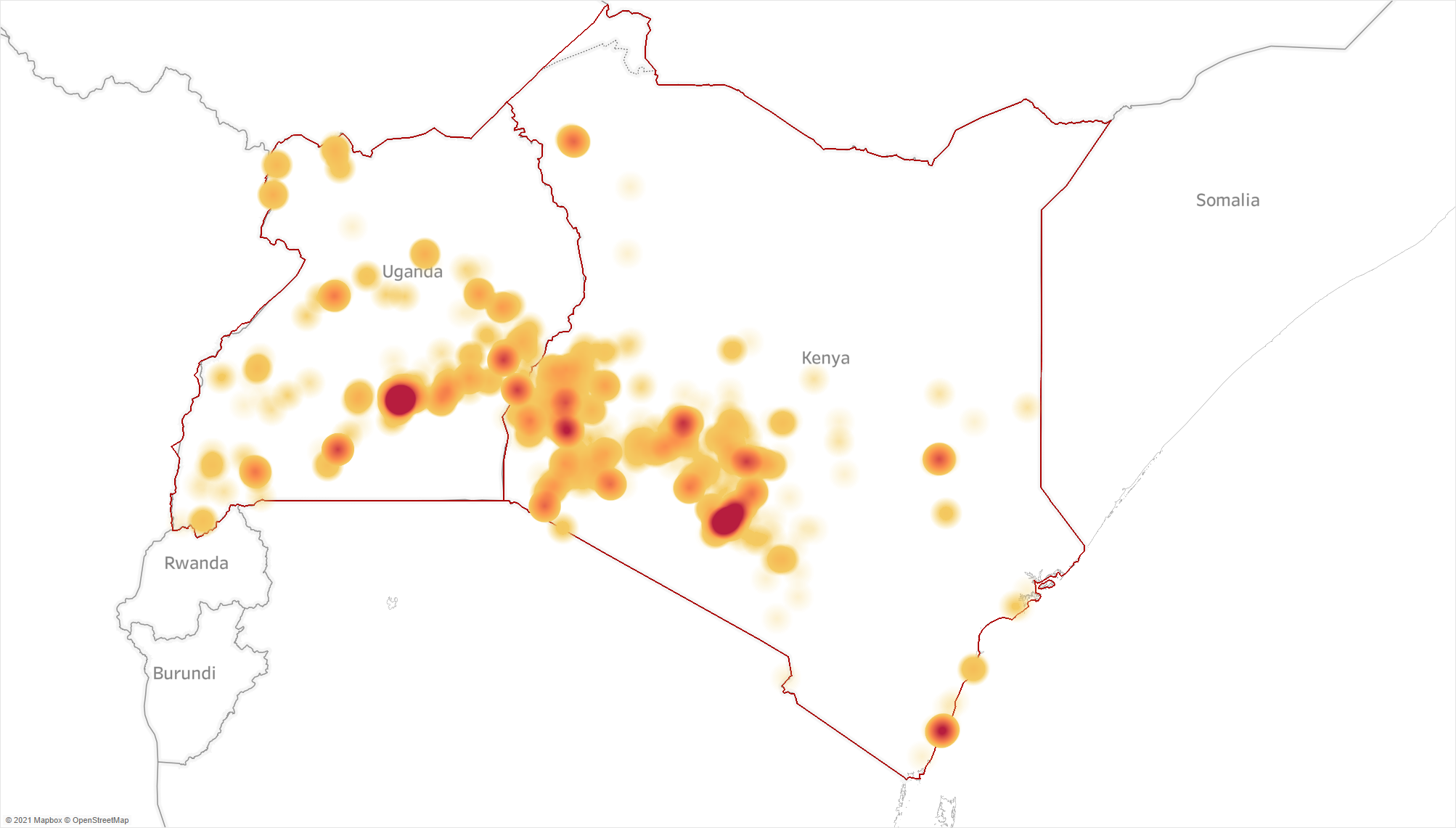Working papers
with Peter Wankuru Chacha, Vatsal Khandelwal, and Benard Kirui
Latest draft (October 2025) | World Bank Working Paper Series
Abstract
The spatial configuration of domestic supply chains plays a crucial role in the transmission of shocks. This paper investigates the representativeness of formal sector firm-to-firm trade data in capturing domestic trade patterns in Kenya, a context with high informality. We document stylized facts showing that formal sector trade exhibits a distinct spatial concentration relative to overall economic activity. Linking transaction-level data with data on informal economic activity, we estimate a structural model and construct a revised network that accounts for informal firms. We find that formal sector trade flows underaccount for trade within regions and across regions with stronger social ties. The higher the incidence of informality, the more we underestimate vulnerability to domestic shocks and overestimate exposure to import shocks.
Selected work in progress
Growing services: Firm dynamics beyond the city
Benard Kirui ® Peter Wankuru Chacha ® Luke Heath Milsom ® Verena Wiedemann ®
Which firms benefit from internet infrastructure?
Supply chain impacts of the EU Carbon Border Adjustment Mechanism
with Anne Brockmeyer, Güneş Aşık, and Lucas Zavala
Published papers
Supply chains in times of crisis: Evidence from Kenya’s production network
World Development 173 (2024)
with Peter Wankuru Chacha and Benard Kirui
Published version | Blog post for UNIDO | Accepted manuscript | Replication code
Abstract
Trading relationships between suppliers and buyers play a key role in transmitting both local and international shocks. We use transaction-level data from Kenya to study the relevance of a firm's domestic network position and links to international supply chains in determining its trajectory during the COVID-19 crisis. We document that firms with high exposure to import and export markets tend to be larger, older, and employ more workers. The specialisation of direct importers, often intermediaries, on international markets made them very vulnerable to the initial COVID-19 shock. Exporters, one-third of whom operate in primary sectors, experienced a less severe decline in sales. We find that both importers and exporters adjust their domestic supply chains in response to international trade shocks - before and during the crisis alike. Sourcing from international markets does not crowd out domestic purchases, while sales abroad and at home can act as substitutes. Diversified domestic supply chains helped firms to mitigate the impact of the COVID-19 crisis and recover more strongly.
Taxing investments in the Asia-Pacific region: the importance of cross-border taxation and fiscal incentives.
World Tax Journal 8(2), pp.193-223 (2016)
with Katharina Nicolay
Published version | ZEW working paper
Other research output and writing
Innovation in green technologies. An opportunity for businesses in low and middle income countries?
IFC insights report (2025)
led by Ralf Martin
VoxDevLit on industrial development - chapter on services
work in progress
with Matthew Schwartzman and Marco Sanfilippo
edited by Francesco Amodio and Markus Poschke
Where does solar scale?
work in progress
with Soumya Agrawal, Ralf Martin, and Golvine de Rochambeau
Changing mobility patterns and food price dynamics during the COVID-19 pandemic in Kenya and Uganda
with George Kariuki Kinyanjui and Doreen K. Rubatsimbira 
Bank of Uganda working paper | IGC report | Policy brief
Abstract
Real-time price data collection during crises is crucial for informing policy responses, but can be challenging due to fast-changing consumption and mobility patterns. We adopt a crowd-sourcing approach to investigate the impact of the COVID-19 pandemic on prices of essential food items in Kenya and Uganda. Combining this price data with information on changes in mobility patterns, we find that a 10 percentage point reduction in mobility leads to a 0.3 percent and 1.5 percent increase in food prices in Kenya and Uganda, respectively. Our results are robust across a variety of empirical specifications, but we cannot conclusively rule out a zero effect in Kenya. Furthermore, our findings indicate that mobility patterns continue to impact price dynamics beyond the initial shutdown phase.

